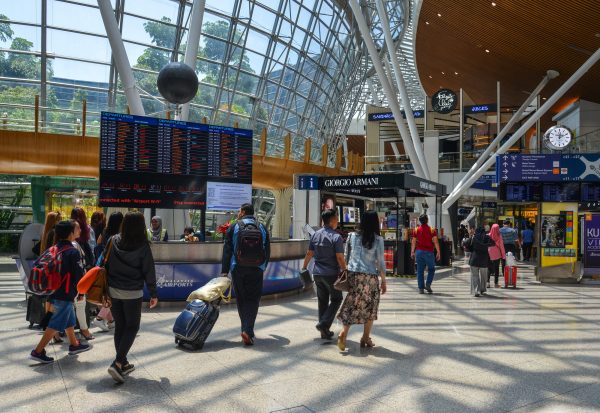Malaysia Airports Holdings Berhad (MAHB) is the holding company that operates most of the airports in Malaysia, including the country’s main entry point, Kuala Lumpur International Airport. MAHB has an interesting backstory because in 1999 it was listed on the Malaysian stock exchange. It was the first major airport operator in Southeast Asia to become a publicly listed company.
Although shares were traded on the exchange, until 2023 more than 54 percent of MAHB was owned by three state-owned investment funds: Kazanah Nasional, the Employee Provident Fund, and KWAP, a pension fund for public employees. This is a common ownership structure in the region, where companies operating strategic national infrastructure like airports will be partially privatized so they can raise capital on financial markets. However, a controlling stake will often be retained by state-owned investment funds or in some cases directly by the government.
It’s a classic example of a state capitalist political economy, because the state wants to tap capital markets to raise money, but without entirely turning critical national infrastructure over to private market forces. If an airport is run purely according to commercial concerns, for instance, with the goal of maximizing profits for shareholders, then other concerns such as economic development or national security may be sidelined. By listing a company on the stock exchange but retaining majority ownership, the state can have the best of both worlds.
MAHB has been operated in this way for the last 25 years. But all of that is changing now, as the airport operator was delisted from the stock exchange at the end of February after a consortium of investors initiated a takeover at 11 ringgit per share. This gives the company a valuation of around 18 billion ringgit, or $4 billion. With MAHB now officially delisted, it means Southeast Asia’s first airport operator to have an IPO has been returned to private ownership.
Except, is this really privatization? It’s being referred to as a private takeover. But the consortium that has taken over MAHB is comprised of three parties. The first is Global Infrastructure Partners, an American company owned by U.S. investment firm BlackRock. The other two partners in the consortium are Khazanah Nasional, one of Malaysia’s sovereign wealth funds, and the Employee Provident Fund (EPF), the largest state-run investment fund in Malaysia.
They were already major shareholders in MAHB, but with the acquisition, Khazanah increases its holdings to 40 percent and the EPF to 30 percent. So, while it is true that members of the public can no longer freely buy and sell shares in MAHB on the stock exchange, two of its new private owners, who between them control 70 percent of the shares, are state-run investment funds.
Another interesting question is why MAHB went private like this in the first place. This is a question many people have been asking because there were some odd things about the deal. For one, MAHB is not a poor-performing company. Unlike Ninoy Aquino International Airport in the Philippines, which was turned over to the private sector because of poor financial and operational performance, MAHB has recovered from the pandemic, is profitable, and is even paying regular dividends. So this is not a case where a struggling company needed to be bailed out by the efficiency of the private sector.
The sale has also provoked questions about the valuation and process. The EPF sold a significant amount of its stock in MAHB in 2023 when the price was between 6.8 and 7.7 ringgit per share. Now they are buying those shares back and more, at a higher price of 11 ringgit per share. Moreover, some of MAHB’s independent directors initially recommended shareholders reject the offer because they felt the price was too low. The new owners were granted several extensions by regulators giving them more time to get shareholder approval.
Looked at in this way, to me this seems less like privatization and more like the government actually wants to regain greater control over its national airports. State-run investment funds have increased their direct ownership in MAHB, in the case of EPF doing so even when it meant buying back in at a higher price. This fits with a larger pattern we are seeing in Malaysia, where state-run investment funds are being leveraged to play a more active role in economic development. And although they’ve done it using the rhetoric of privatization, the lines between public interest and private ownership in this deal are actually somewhat blurred.


